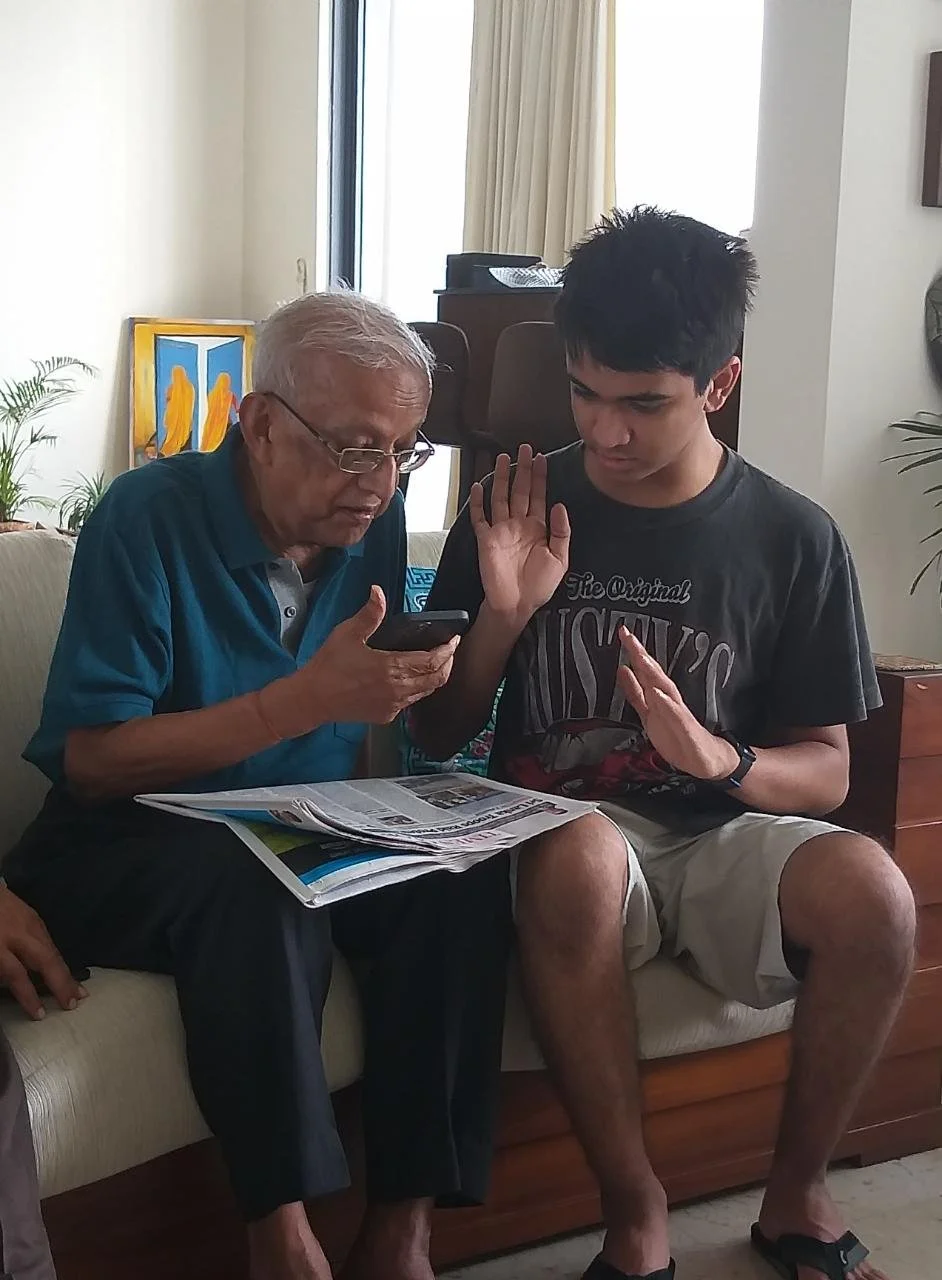Challenges with Low Vision, Close to Home
Many of my formative childhood years were shaped by my grandfather. He is a retired executive who used to work at Tata Motors, and is one of the smartest people I know. He held long-standing records in his college for his outstanding academic performances in subjects like math and science, and he carried this intelligence into his work. When I was first learning to walk, he held my hand; when I was preparing for state-level spelling bees, he helped me prepare; when I wanted to play cricket, he played with me any time of the day; when I was stuck on a math problem, he taught me the solutions in ways that felt like magic.
However, as I grew up, I started to notice him relying on me more and more. When out in public, he took me to the restrooms with him. When at a buffet lunch, he needed me to read out the menu items for him. It wasn’t for a long time that I realized what was happening, or even registered that it was happening. However, I came to learn that my grandfather had been diagnosed with glaucoma.
Glaucoma is a name for a group of eye conditions that cause damage to the optic nerve, which is the nerve that sends signals from the eye to the brain. In nearly all cases, the only symptom is a slow, but unstoppable, vision loss. As my grandpa began to spiral down this path, he had to rely on me for such basic things as going to the restroom, for fear of walking into the wrong restroom. He had to rely on me to read out the menu items when we went out for dinner, because not only was he allergic to certain food items and scared he’d eat the wrong thing, but he was also flat-out embarrassed. Watching my genius, confident grandpa become shrouded in fear and shame was plainly painful.
Seeing someone close to you suffer builds empathy for those with similar suffering, and I realized my grandfather is no exception. Glaucoma is just one of many conditions, including macular degeneration, cataracts, and retinopathy, which plague over 12 million Americans over the age of 40, with over 2.2 billion people globally having some form of vision impairment. Vision impairment is not just about dealing with a disease; it impacts the quality of daily life, and it results in an inability to live confidently and independently. While there are products and solutions for the visually impaired, and while there is a lot of talk of “accessibility”, looking at my grandpa’s daily struggles, I am not sure that enough is being done here.

